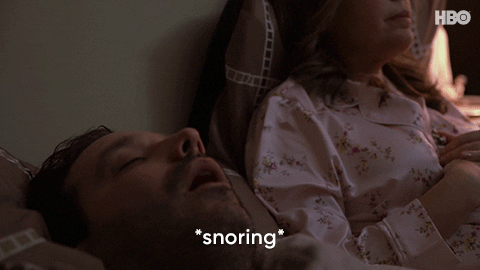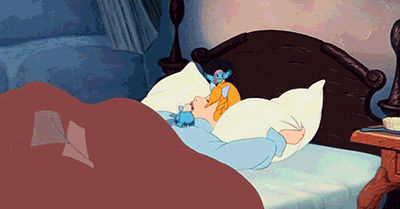

Have your loved ones been complaining about your snoring waking them up? Do you often feel tired during the day? Has your family seen you stop breathing during sleep? You may be suffering from sleep apnea. It is a potentially serious disorder and when untreated, it might lead to complications like high blood pressure, heart problems, or type 2 diabetes.
Take this self-evaluation test we prepared and find out if you have sleep apnea. Talk to your doctor if you experience symptoms of this condition.
What is sleep apnea? It is a sleep disorder that occurs when breathing repeatedly stops and starts during sleep. There are three main types of sleep apnea.
Obstructive sleep apnea is the most common form. It happens when the muscles in the back of your throat relax. The tongue and soft palate (muscular part of the roof of the mouth) collapse onto the back of the throat, causing the airway to narrow or close as you breathe in. The lack of oxygen causes the brain to wake you up briefly to restore normal breathing. This pattern can repeat hundreds of times at night, impairing your ability to get restful sleep.
Central sleep apnea happens when your brain fails to send signals to your breathing muscles. It causes your breathing to repeatedly restart during the night. You may awaken with shortness of breath or have difficulty falling or staying asleep.
Complex sleep apnea syndrome occurs when an individual has both obstructive sleep apnea and central sleep apnea. It is also known as treatment-emergent central sleep apnea.
What are the most common signs of sleep apnea? Snoring is the most obvious one. Not every person who snores has this condition, but loud, frequent snoring with periods of silence, accompanied by choking, gasping, or snoring sounds, indicates sleep apnea.
Another symptom is episodes in which you stop breathing during your sleep. You could ask another person to observe you when asleep to see if this symptom occurs.
There are signs you can notice when you are awake. These include morning headaches, waking up with a dry mouth, irritability, fatigue, struggles with concentration, and either insomnia (difficulty falling asleep) or hypersomnia (excessive daytime sleepiness).
Sleep apnea can affect anyone, but some factors could increase the risk of this disorder. The following conditions advance the risk of obstructive sleep apnea:
What makes it more likely for you to develop central sleep apnea? Factors that increase the risk include being older, male, having heart disorders, using narcotic pain medications, and having had a stroke.
Sleep apnea can lead to many complications. The inability to have a good night’s sleep might cause daytime fatigue, difficulty concentrating, moodiness, and irritability. People with sleep apnea have an increased risk of car accidents and accidents at the workplace. Children with sleep apnea might have behavioral problems, and their performance in school could suffer.
Sudden drops in blood oxygen levels caused by sleep apnea raise blood pressure and put a strain on the cardiovascular system. Obstructive sleep apnea increases your risk of high blood pressure (hypertension).
Obstructive sleep apnea may also increase your chances of having a heart attack, stroke, or abnormal heartbeats such as atrial fibrillation. Multiple episodes of low blood oxygen can lead to sudden death from an irregular heartbeat if you suffer from heart disease.
Having sleep apnea increases your risk of developing insulin resistance and type 2 diabetes. You’re also more likely to have abnormal liver function test results due to signs of scarring (nonalcoholic fatty liver disease).
People with sleep apnea might have complications after major surgery because of breathing problems. Being sedated and lying on their back can be particularly dangerous.
Snoring caused by sleep apnea can affect your relationships. It might keep your partner from having a good night’s sleep. They might even be forced to go to another room to get some rest.
Do you want to know if you have sleep apnea? Self-evaluate with our quiz and get help for your condition! Show the quiz to that person in your life who wakes you up with their snoring 😉